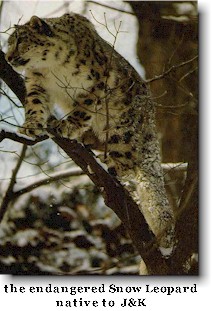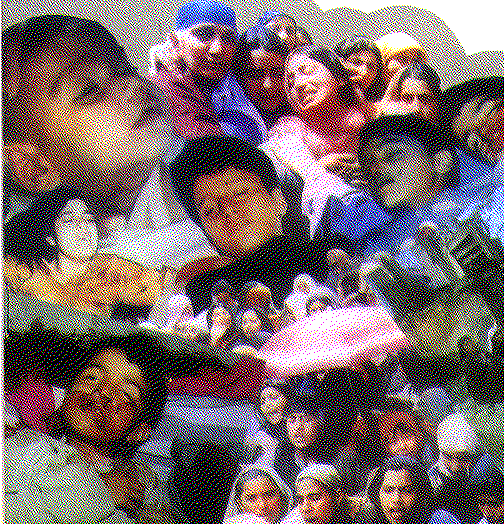D

TOto
D
![]()
 About
Me
About
Me

About My Place
Jammu & Kashmir (commonly referred to as
"Kashmir") is situated in one ofthe most captivating and tumultuous geographical
regions of the world.Jammu & Kashmir is centrally located between Pakistan,
India, Tibet, China, and Afghanistan. Since 1947, Jammu & Kashmir has
been divided and disputed between India, Pakistan, and China. (current
political map of Jammu & Kashmir).

KASHMIR:Where Heaven Meets
The Earth
Since ancient times Jammu & Kashmir has been
renowned for its natural beauty and gentle people. Possessing some of the
highest and most beautiful mountain peaks, massive glaciers, blue lakes,
rivers,forests, and meadows, Jammu and Kashmir has been likened to a paradise
on earth. For thousands of years, this beautiful land with its unique Eco-systems,
has been home to a diverse wildlife.
 Sky
Reaching Mountains: The Snow covered Peaks
Sky
Reaching Mountains: The Snow covered Peaks
Kashmir Consisting of hundreds of picturesque
valleys connected by high mountain passes and the rivers and streams which
have carved out these valleys,Jammu & Kashmir lies surrounded by a
series of mountain ranges. Jammu & Kashmir is the meeting place of
the great Himalayas, Karakoram, Ladakh, Hindu Kush, and Pir Panjal mountain
ranges. These tall mountains have always challenged the adventurers,to
scale up to their highest possible limits.
 Nature's
Gift:The breathtaking Lakes
Nature's
Gift:The breathtaking Lakes
At the edge of the city lies the famous Dal Lake
(8Km by 4Km) which houses the numerous houseboats.To the east of the city
is located the smaller Nageen Lake which also houses houseboats. Wularlake
acting as a major source of fisheries.All the lakes have varied fauna and
flora. Lotus flowers are in abundance around the lakes whereas in some
area of the lakes, vegetables are grown on floating pieces of land.
 Floating
houses: The House boats
Floating
houses: The House boats
The glory of the lakes are the floating house
boats.These boats have all the facilities of a house.The houseboats, dating
back to the British period, are an experience for the visitors with all
the amenities and luxuries on board.The lakes are visited by paddle boats
or, more commonly, by Shikaras (luxury boats with canopies especially used
for visitors).Visitors have been always attracted toward these house boats.
 Forests:
Dwelling of Animal Kingdom
Forests:
Dwelling of Animal Kingdom
Kashmir is the home to many species,which include
Musk Deer,Hangul,Snow Leopards,Mountain Beers,Ibex,Markhor and many other
cats. SNOW LEOPARD :The rarest and most beautiful of the great cats, the
snow leopard...is wary and elusive to a magical degree, and so well camouflaged
in the places it chooses to lie that one can stare straight at it from
yards away andfail to see it." Yet the snow leopard's talent for invisibility
has not kept it safely out of the sights of hunters,who continue to kill
the cat for its "coat of pale misty gray, with black rosettes that are
clouded by the depth of the rich fur". Elusiveness also has done little
to help the snow leopard cope successfully with an ever-increasing influx
of tourists, sheep herders, dam-builders, and other humans eager to make
use of the spectacular landscape. The result is that the snow leopard,
despite its remote home high in the Himalayas,has become one of the most
endangered of the large cats. HANGUL :The Hangul Deer or Kashmiri stag
is an endangered species of red deer. The Hangul is one of the most famous
animals of Jammu & Kashmir. It inhabits the thick forests of Jammu
& Kashmir. In the past, Jammu &Kashmir had a large and vibrant
population of Hangul Deer.Jammu & Kashmir does have one reserve and
conservation area for Hangul Deer; the Dachigam National Park, also home
to a diversity of wildlife.

The Bleeding Valley:Wounded
Paradise
portion of Kashmir is with India and some of
it with Pakistan. What people demand is unification of both the parts but
their cries have been put to deaf ears. Government and the other concerns
value the land much more than the people. So the representativeToday Kashmir
is wounded.It is bleeding.It is being used a mere dice just for mainpulation
by India. A major s of the people are not invloved in the 'so called" peace
talks. Pakistan has always supported the cause of the movement and done
its best in portraying the actual picture to the world.However India has
always claimed Kashmir to be its 'integral' part. India's claim that Kashmir
is Indian territory is based on nothing more than an Instrument of Accession
signed by the Maharajah in order to obtain India's military help against
a popular insurgency. This accession was conditional on a reference to
a popular vote (not yet held) under impartial auspices. The Indian claim
is rejected by the people of Kashmir, and challenged by Pakistan. It has
never been accepted by the United Nations, nor legally validated. The current
agitation in Indian-Held Kashmir is rooted in the struggle of the people
for the exercise of the right of self-determination. Peaceful processions
chanting demands for freedom were fired upon by Indian Army and Police.
Hundreds of men, women and children have been killed or wounded. New Delhi's
allegations of assistance to the Kashmiri people from the Pakistan side
are unfounded. Objective reports in foreign media testify that the Kashmiri
agitation is indigenous. Pakistan upholds the right of the people of Jammu
and Kashmir to self-determination in accordance with the resolutions of
the United Nations Security Council. These resolutions of 1948 and 1949
provide for the holding of a free and impartial plebiscite for the determination
of the future of the State by the people of Jammu and Kashmir. The Security
Council has rejected the Indian contention that the people of Kashmir have
exercised their right of self-determination by participating in the "elections"
which India has from time to time organised in the Held Kashmir. The 0.2%
turn out during the 1989 "elections" was the most recent clear repudiation
of the Indian claim.Pakistan continues to adhere to the UN resolutions.
These are binding also on India. Presence of United Nations Military Observers
Group in India and Pakistan UNMOGIP) at the Line of Control in Kashmir
is a clear evidence off UN's involvement in the Kashmir issue. Jammu and
Kashmir is a disputed territory. It dies not involve the principle of respect
for the unity and territori8al integrity of states, to which Pakistan adheres.
Attempts to forcibley suppress the legitimate demands of the people of
Jammu and Kashmir are doomed to failure. Similarly, threats of use of force
will not affect Pakistan's resolve to maintain its position of principle.
 Torture:Is it Justified?
Torture:Is it Justified?
Indian armed forces have let loose a reign of
terror and are pursuing with the policy of unabated killings,torture and
brutal methods of killings in Kashmir State since 1989. Despite the fact
that international community and Human Rights Organizations all over the
World have registered constant protests against this policy of Indian Government
in Kashmir, no change is visible in the acts of repressions and suppression
at the hands of forces. In fact the death due to torture and in custody
have alarmingly increased. Many such incidents go un-noticed due to severe
restrictions on the movement of people, constant crackdowns, curfews and
other repressive measures by the forces. However, the Forum has been able
to collect details about some such incidents which are based on personal
information, print and electronic media and data collected by Human Rights
activists. The officials and armed forces are in the habit of naming such
killings as the result of so called encounters. But the fact of the situation
is that most of such arrests are made during crackdown operations where
people of the area are collected first, bodily searched before their entry
in the specified area and then subjected to identification. The arrests
of the people are made when such persons are totally unarmed and there
is no possibility of any encounter with the forces. Such fake encounters
are carved out by the forces in order to save themselves from the wrath
of international community and over all public resentment.
 Killings:The
Jungle Law
Killings:The
Jungle Law
Since 1989, an estimated 40,000 Kashmiris have
been killed by the Indian forces stationed in Kashmir. For the last five
years the people of the State have intensified their efforts in order to
invite the attention of the world community towards the "Kashmir Dispute",
though the people of the State had been fighting for their just cause peacefully
for the last forty eight years. Indian Government throughout these four
decades has been suppressing the people by illegal use of force, putting
them into the jails/ Interrogation centres etc.under draconian laws. Whenever
any person demanded holding of " Plebiscite", he has been put behind the
bars. The Indian Forces, stationed in Kashmir, have been given a free hand
to kill any person they choose.These powers have been given to them under
the draconian laws like "Disturbed Areas Act of 1990" and "Indian Armed
Forces Act of 1990". Indifference shown by world community to the miseries
of people, have encouraged and given a free hand to armed forces, to deal
with the people, as they like. In October 1992, the Indian Armed forces
started to intensify the killing of people immediately after their arrest.
These operations have been carried out under the code name of "Operation
Tiger", "Operation Eagle" and "Operation Shiva". Now the armed forces have
resorted to another policy of "Catch and Kill" which means that no sooner
a person is taken into custody, within minutes he is brutally tortured
and killed . The dead body is then thrown into the street. In other cases,
innocent civilians are arrested and taken to border areas where they are
shot. The Indian government then publicises that these people were militants
killed in armed encounters with the troops. It is common practice for the
paramilitary forces to walk into a quiet village/town and start shooting
indiscriminately, killing innocent and unarmed civilians - all under the
pretence of crack-down operations against the Freedom-Fighters. In most
cases, innocent civilians are killed, women gang-raped and properties set
on fire. CONCULSION:The 'so called Peace Talks' are not going to improve
the present situation, unless & until peoples representatives are included
in the talk.The two Nations cannot decide anything about Kashmir,if they
don't take in v iew about what the masses demand. Kashmir niether culturally
nor geographically resembles India or Pakistan,it is a nation itself which
unfortunately has been cut into parts.The masses demand unification of
both ,The Indian occupied Kashmir & Pakistan occupied Kashmir.The peace
can never be reached at,if the demands of the people are not met.So unification
of both the parts can normalize the situation in the Indian sub-continent.